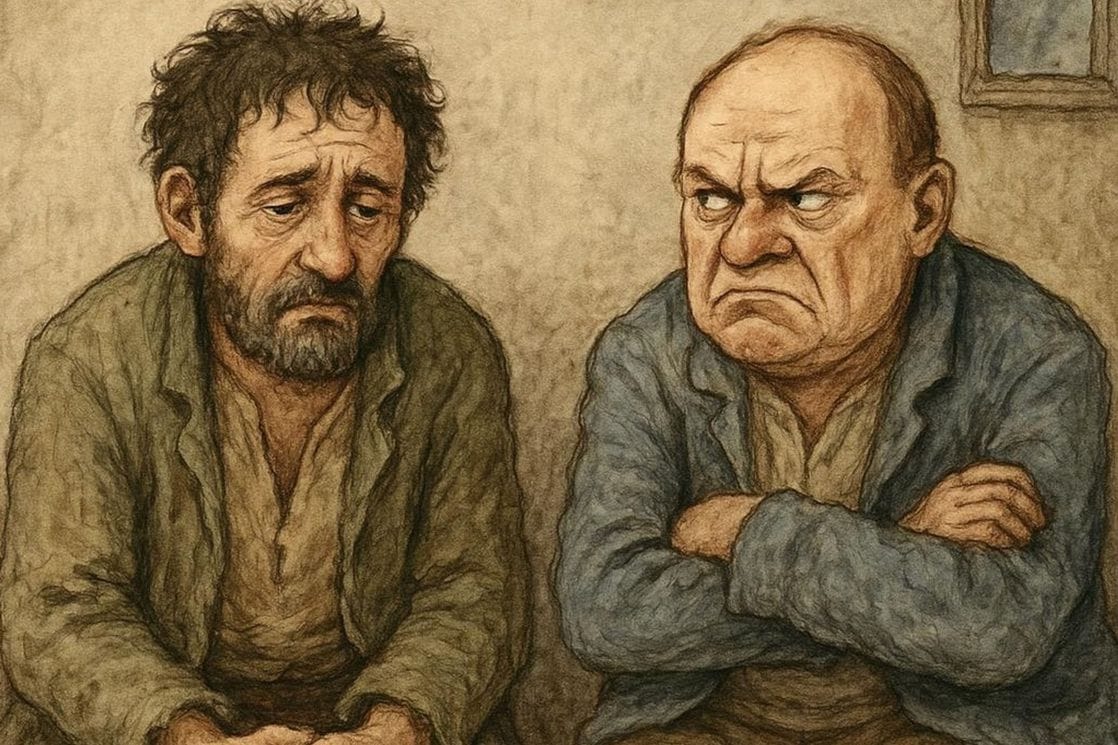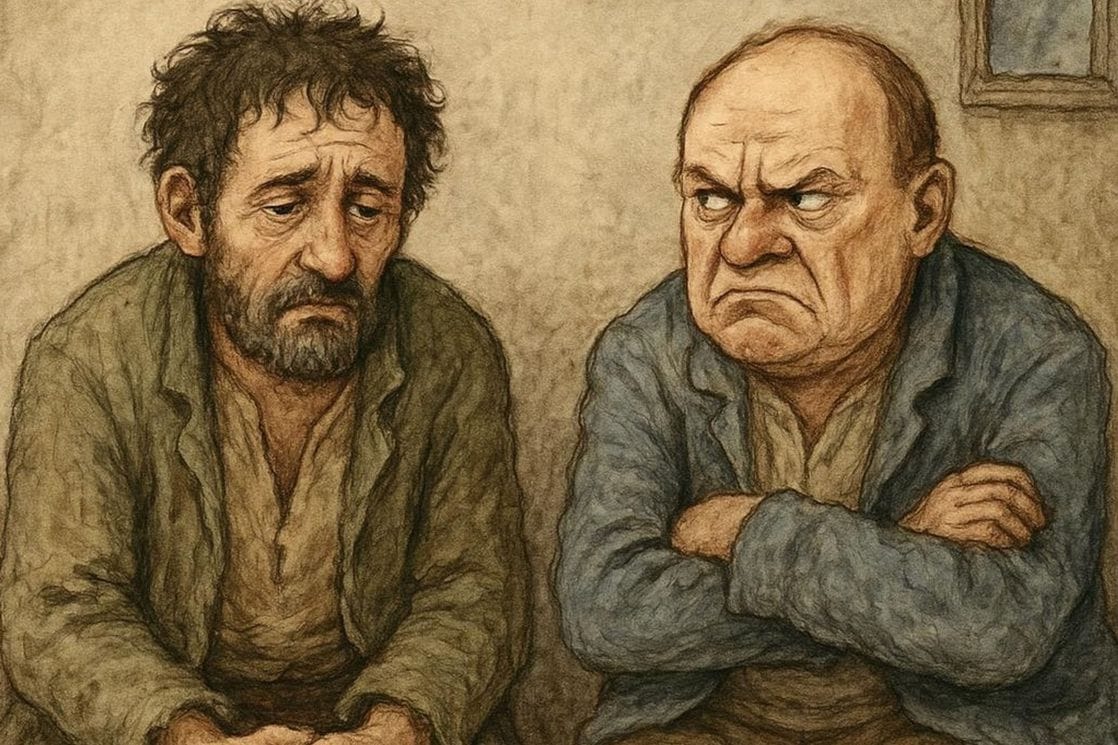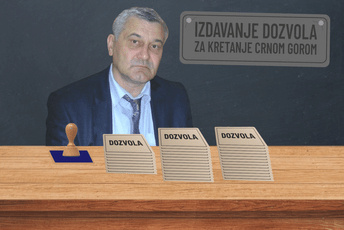The main topic of the article “Two Poor Brothers” is a metaphorical depiction of conflicts and hostility among contemporary leaders in the Balkans and beyond, viewed through the lens of the historical and cultural tradition of literacy and brotherhood among Slavic peoples. The author connects historical figures and events with today’s political leaders, emphasizing that conflicts and hatred among them are often destructive and harmful to the peoples they represent. The text reflects on the glorious tradition of literacy established by Saints Cyril and Methodius, as well as the cultural significance of literacy and unity among Slavic peoples. The author criticizes current political figures who, although seemingly opposed, share similar motives of power and destruction, highlighting the dangers such conflicts bring, including global conflicts. The topic is presented through a complex blend of history, culture, politics, and social issues, with a strong humanistic appeal for peace and understanding.
Political Perspectives:
Left: Left-leaning sources tend to emphasize the destructive nature of political conflicts and the need for solidarity and peace among peoples. They highlight the historical and cultural roots of Slavic unity and criticize nationalist and authoritarian tendencies among leaders. The narrative often focuses on the human cost of political power struggles and calls for a return to humanistic values and cooperation.
Center: Center-leaning sources present a balanced view, acknowledging the historical significance of Slavic literacy and brotherhood while critically analyzing the political dynamics of contemporary leaders. They tend to focus on the complexity of political relationships and the importance of dialogue and diplomacy. The narrative stresses the need for pragmatic solutions to conflicts and the preservation of cultural heritage.
Right: Right-leaning sources often emphasize national identity, tradition, and the importance of strong leadership. They may highlight the historical achievements of Slavic culture and literacy as a source of national pride. The narrative can include criticism of perceived external threats and the necessity of defending national interests, sometimes portraying political conflicts as struggles for sovereignty and survival.


















